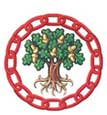Bank Of England Wills Extracts 1717-1845
Discover your ancestors who died with monies in public funds in England or who were stockholders who went bankrupt or were declared lunatic. From these extracts, you may be able to explore your ancestors’ names, marital status, and executors’ names, which could help to fill in another branch of the family tree.
See description
Discover your ancestors who died with monies in public funds in England or who were stockholders who went bankrupt or were declared lunatic. From these extracts, you may be able to explore your ancestors’ names, marital status, and executors’ names, which could help to fill in another branch of the family tree.
Learn about these records
Transcript
Each record comprises a transcript and black and white image of the original register. The amount of information listed varies, but the records usually include a combination of the following information about your ancestor:
• First name(s)
• Last name
• Birth year
• Entry year
• Date
• Place
• County
• Description
• Record Type
Image
The image may contain additional information, including:
• Marital status
• Details of personal wealth
• Executors’ names
• Executors’ relationships to the deceased
• Details of bequests
• Death date
The record set comprises 60,549 records from 105 counties in Britain, Ireland, and the Colonies.
The record set includes Chester Wills and Probate 1492-1911, London Probate Index 1750-1858, Northamptonshire and Rutland Probate Index 1462-1857, Prerogative Court of Canterbury Wills Index 1750-1800, Suffolk Testator and Beneficiary Indices 1847-1857, and the West Kent Probate Index 1750-1858.
The records contain extracts of wills of those who died with monies in public funds, as well as abstracts of orders made for stockholders who went bankrupt or were declared lunatic.
All social conditions are to be found, from servant girl to Peer of the Realm. Stockholders, or fundholders as they used to be called, appear to come from every part of the British Isles and the Colonies. There are also several hundred Dutch fundholders.
The registers from which this index was compiled were presented to the Society of Genealogists by the Bank of England in 1985. The registers are one of the most valuable sources for Georgian biographical and genealogical information to have become available in recent years.
The records
An entry from June 1760 includes the wonderful name, Tiberius Beelsnyder Matroos Esquire, who was made executor of the will of Lady Maria Clignet of Utrecht. .
